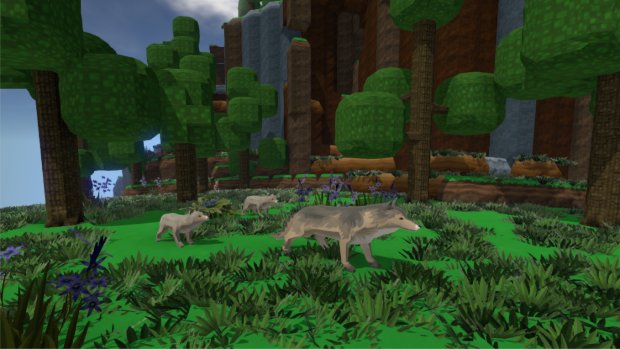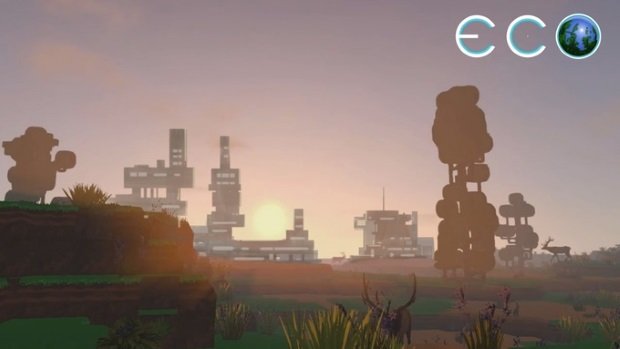
The premise of Eco is simple; you've been given a world – try not to mess it up. And given unlimited time and resources, that might be quite simple. But the first time I smelted ore into iron bars, I learned just how very not simple this task would be.
In many games, crafting is simple arithmetic. X + Y = Z. Three pieces of wood plus one piece of iron makes an iron shovel. Poof! The end. Not so here. After fueling a furnace with timber and dumping raw materials into an inventory screen, I exited the building in which my one-stop creation device was housed.
As I turned the corner to head back into the world, I could see that the previously deep-blue waters flowing nearby had been tainted a sickly brown. The more the refinery was used, the worse the contamination got, seeping into nearby soil, killing plant life and piling up on the riverbank to create a mushy toxic sludge.

Everything you do in Eco impacts the world around you. These are the ground rules, and things only get more dire. Imagine that a meteor is on its way to the planet, and its collision with the surface will cause a major extinction event. You have 30 days to come up with a solution, but the amount of work it will take to construct said solution cannot be completed by you alone. Players will need to form a functional society where labor can be delineated and assigned so that everyone survives.
Resources must be harvested, and striking the critical balance between "enough to survive" and "destroying your own habitat" is key. Act too conservatively and you might not build a solution in time. Exploit resources too greedily and the meteor will be the least of your concerns, as the planet will already be dead. Everyone must play their part to help the planet continue.
Of course, it might help to have a set of laws in place to keep the situation from spinning out of control; that's where Eco's player-run government comes in. Like the rest of Eco, it's not a fully formed analogue of the real thing, but a streamlined and simple approximation. Before players log in and go resource gathering, they'll be able to propose and vote on laws like "The Elk Conservation Act," which limits players to no more than five elk kills per day.
All of these systems come together to form a fascinating experiment in human behavior that could easily be used as a teaching tool. Imagine a science class where the students are given a world in Eco and faced with an apocalyptic scenario. They've been learning about the importance of conservation, about food chains and environmental changes, and now a game can put this knowledge to the test. It'd be more fun than a pop quiz, anyway.
Sign up to the GamesRadar+ Newsletter
Weekly digests, tales from the communities you love, and more
Similarly, Eco can help those of us no longer in school. The data that determines its simulations (including soil properties, the spread of contaminants and more) is based on university research performed in the real world. Creating a virtual Earth on which to test hypotheses could lead to a better understanding of our own.
We debate things like climate change and the impact humanity has on the planet, but Eco makes it clear: for better or worse, you are changing the world. Seeing the negative impact I caused made me want to do better.
Eco is currently in development for PC, Mac and Linux. A beta is scheduled for early 2016.
Sam is a former News Editor here at GamesRadar. His expert words have appeared on many of the web's well-known gaming sites, including Joystiq, Penny Arcade, Destructoid, and G4 Media, among others. Sam has a serious soft spot for MOBAs, MMOs, and emo music. Forever a farm boy, forever a '90s kid.



